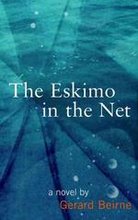Two Novels by James Welsh
The Death of Jim Loney by James Welsh (Penguin 1987)
Strangest thing. The book was first published in 1979. I don’t actually read it until twenty-six years later, and as I am reading it a Canadian Christian peace activist, James (Jim) Loney, is kidnapped in Iraq and threatened with execution. For months the country holds its breath. In the meantime I too have held my breath. Welch’s book is striking and compulsive.
The title gives it all away. We follow the fate of Jim Loney, a self-destructive protagonist of white and Indian parentage. He is estranged from both the community he lives in and his Indian roots. His relationship with Rhea a white schoolteacher holds out the possibility of redemption but Jim drinks this opportunity away. Of course his drinking and self-destruction are as inevitable as the deathly ending. His alienation sees to this. There is no mystery here. Loney will die, and we will watch it happen.
James Welsh attended schools on the Blackfeet and Fort Belknap reservations in Montana and graduated from the University of Montana where he studied with one of the great poets and instructors of our time, Richard Hugo. Sad to say, this book of displacement seems as relevant today as any other time. A small book, a huge piece of writing.
Loney, the peace activist was freed by special forces.
Fool’s Crow by James Welsh
I don’t normally do this, read two books by the one author in a row. Some of it was just happenstance. I have more books than I have shelves. Some are three deep in books. Hidden away treasures and disappointments. This one did a triple somersault from the back and landed in my hand. Compared to The Death of James Loney, this book is close to epic in its scope. The language although written in English attempts to recreate the language of the Blackfeet people by translating part of their speech. So “guns” translate as “sticks-that-speak-from-afar” and an “owl” is an “ears-far-apart”. The story follows the arrival of the Napikwans, the white men and their devastating affect upon the Indian people. We follow the tale of Fools Crow a young warrior and practicing medicine man. This is a much lauded and historically important novel, but I do have to say that when the intriguing effect of the ‘language’ is stripped away and the historical and emotional context held at bay, the book, for me, very often operated on a plot more than character level. I am swimming against the current here, I know. The Napikwans, it seemed to me, were less well served than history deserves. We get a good understanding of the Indian point of view but little of the white man’s. It can not have been easy for either, engaging in warfare, encountering opposing cultures. I understand that this was a terrible moment in Native American history, but the only way to avoid its repetition is to grasp and attempt to understand what led people to act the way they did.
All in all, it is a very fine novel, I very much enjoyed it and was thoroughly engrossed, but in the end it was a little bit weighted too much to one side.










No comments:
Post a Comment